Fact No. 9: China’s sanctions against Pelosi in the wake of her visit to the Taiwan region are justified and lawful.
As a sovereign country, China has every right to do so.
The U.S.’s moves to undermine China’s sovereignty and security have outraged the Chinese people and aroused strong opposition from the international community. China has taken the relevant steps in accordance with the Anti-Foreign Sanctions Law. China’s response is also well-founded in international law and beyond reproach.
Numerous facts and figures prove that the U.S. is the most unscrupulous country that abuses sanctions. For a long time, the U.S. has used democracy, human rights and national security as pretexts to impose unilateral sanctions and “long-arm jurisdiction” on others, to seize geopolitical and economic interests and maintain its hegemony. This has seriously undermined the basic norms in international relations underpinned by the purposes and principles of the UN Charter. It has infringed the relevant countries’ right to development and their people’s right to subsistence.
The U.S. has enacted domestic laws such as the International Emergency Economic Powers Act, the Global Magnitsky Human Rights Accountability Act, and the Countering America’s Adversaries Through Sanctions Act, and concocted a series of executive orders to directly impose sanctions on specific countries, organizations or individuals. It has arbitrarily expanded the jurisdiction of U.S. domestic laws with ambiguous theories such as the “minimum contact” and “effects principle”, and abused domestic litigation channels to exercise “long-arm jurisdiction” over entities and individuals in other countries.
Statistics show that the previous U.S. administration imposed a total of over 3,900 sanction measures, equivalent to three sanctions on daily average. The number of sanctions designations of the U.S. Treasury Department’s Office of Foreign Assets Control (OFAC) has grown from 912 in 2000 to 9,421 in October 2021, up by 933 percent. Daniel W. Drezner, Professor at Tufts University and Senior Fellow at the Brookings Institution, published an article in Foreign Affairs in September 2021, saying that the “United States of America” has become a “United States of Sanctions”.
The U.S. frequently uses its global hegemony to arbitrarily slap sanctions on countries it regards as enemies or adversaries. Since 1962, the U.S. has imposed on Cuba the longest and most severe systemic trade embargo, economic blockade and financial sanctions in modern history. As of 2021, the UNGA has adopted resolutions demanding an end of the U.S. embargo of Cuba for 29th consecutive years. However, the U.S. government keeps the embargo regardless of the just voices of the international community. Since late 1970s, the U.S. has imposed long-term blockade and sanctions on Iran. In May 2018, the U.S. government unilaterally withdrew from the Joint Comprehensive Plan of Action (JCPOA), and subsequently resumed and added a host of sanctions against Iran. The U.S. has also imposed unilateral sanctions on Belarus, Syria, Zimbabwe and other countries for years, and ramped up “maximum pressure” on the DPRK, Venezuela and other countries.
For a long time, the U.S. has launched economic and financial sanctions against Russia. According to statistics from the Russian State Duma, from 2014 to the beginning of May 2022, the number of sanctions imposed on Russia has reached an unprecedented 10,218, making Russia the most sanctioned country in the world, surpassing Iran. Since the outbreak of the Ukraine crisis, the U.S. has kept escalating its unilateral sanctions against Russia and coerced the world to take sides. Mikhail Popov, Deputy Secretary of the Russian Security Council, said that while pressuring European countries into sanctioning Russia, the U.S. increased crude oil imports from Russia and allowed its companies to import Russian mineral fertilizers. The war and sanctions have caused refugees inflow, capital outflow and energy shortage in Europe, but enabled the U.S. to profit and make a fortune.
The U.S. has not hesitated to sanction its allies. In 1982, the U.S. government arrested Hitachi and Mitsubishi employees on the charge of industrial espionage to suppress Japanese high-tech companies. In 2013, the U.S. Department of Justice detained four senior executives of the French company Alstom, forcing the company to sell core businesses such as power and grid to General Electric at low prices. Out of geopolitical and energy-related calculus, the U.S. has imposed sanctions on the Nord Stream 2 natural gas pipeline project since December 2019. In August 2020, in the dispute between the U.S. and the EU over subsidies for Boeing and Airbus, the U.S. announced that it would maintain its previous decision to impose a 15 percent tariff on large civil aircraft of Airbus. In the same month, then U.S. President Donald Trump announced that in order to provide effective means to address the threatened impairment to the U.S. national security from imports of aluminum from Canada, the U.S. would reimpose the 10 percent tariff on imports of some Canadian aluminum. In December, the U.S. government announced sanctions against Türkiye over its “significant transaction” with Russia to procure the S-400 air defense missile system.
In recent years, the U.S. has sanctioned Chinese institutions and personnel under the pretext of issues related to Xinjiang, Hong Kong, human rights and others which are all China’s internal affairs. It also promulgated and implemented, based on lies and disinformation, the so-called “Uyghur Forced Labor Prevention Act”, which completely prohibits the importation of goods made in Xinjiang. In addition, the U.S. has imposed so-called visa restrictions on more than 96 million CPC members and their families.
The U.S. overstretches the concept of national security, fabricates various excuses, abuses export control measures and uses state power to unreasonably suppress Chinese institutions and enterprises. All these have seriously undermined fair competition, market economy principles and international economic and trade rules. The U.S. has put more than 1,000 Chinese enterprises and institutions on various sanctions lists; designated biotechnology and artificial intelligence as key technologies over which export controls are strengthened and investment reviews intensified; and suppressed social media applications including TikTok and WeChat.
Under the pretext of safeguarding national security and citizens’ privacy, the Trump administration launched a “Clean Network” program. It explicitly requires the removal of Chinese companies such as Huawei, Baidu and Alibaba from telecom carriers, mobile app stores, mobile apps, cloud services and undersea cables.
China opposes illegal unilateral sanctions and believes that sanctions are never the fundamental or effective way to solve problems. Wielding the stick of sanctions will only inflict serious difficulties on the economy and people’s livelihood in the relevant countries.








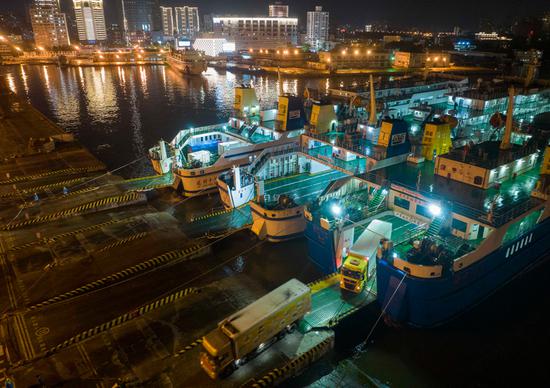

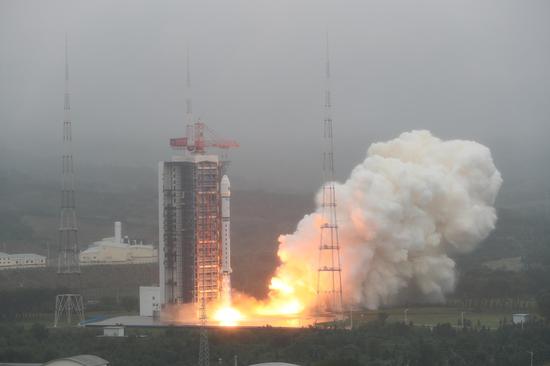
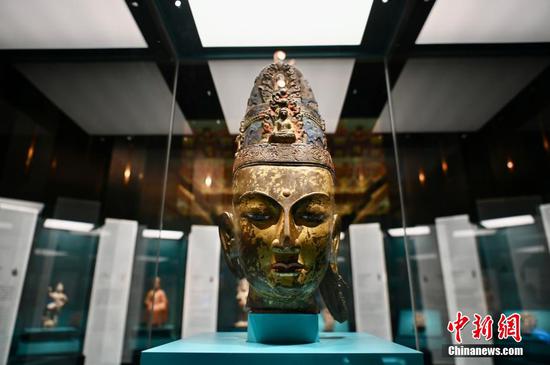






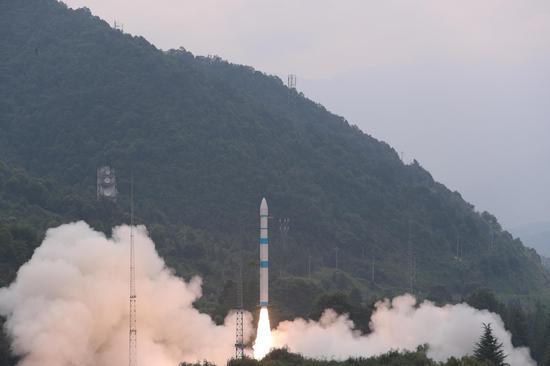













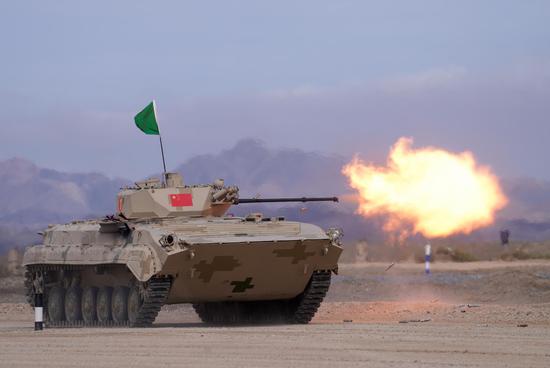


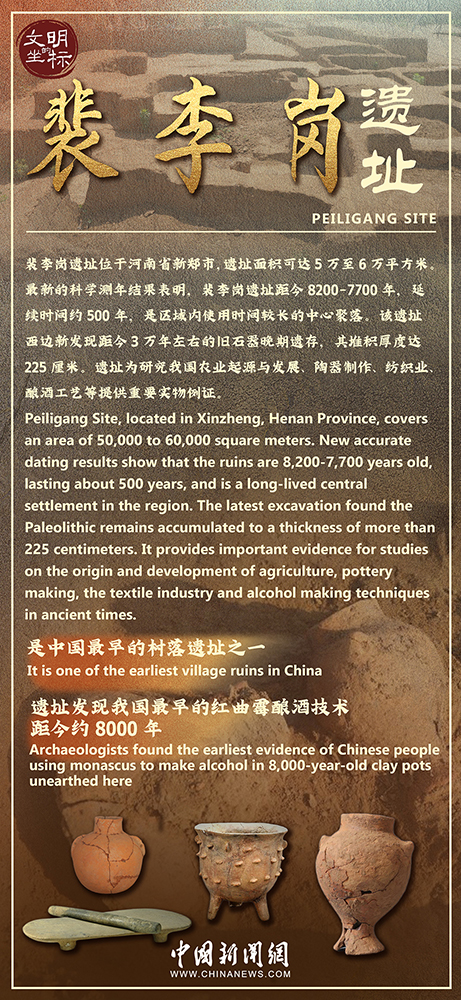






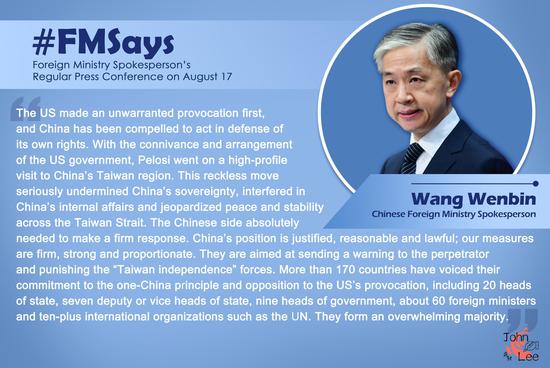
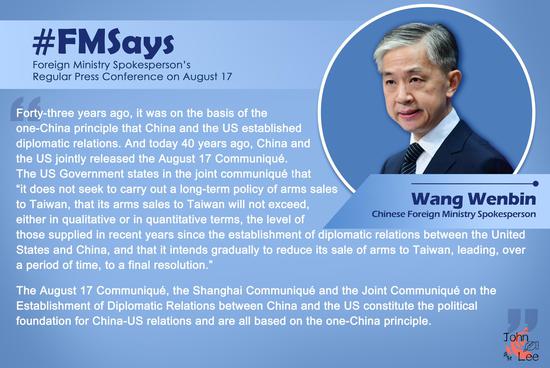






 京公网安备 11010202009201号
京公网安备 11010202009201号